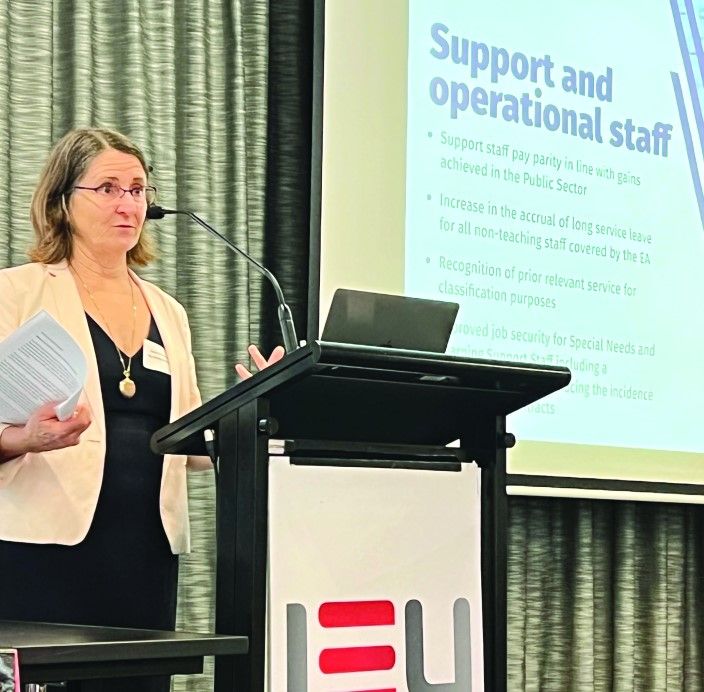
The union’s campaign for better pay and conditions for teachers and support staff in Catholic systemic schools is well under way.
Members and delegates at the IEU Council on 19 March voted unanimously for teachers and support staff who work in Catholic systemic schools to pursue the 'Hear Our Voice: A fair deal for teachers and support staff' campaign utilising the media and, if required, move toward taking protected industrial action.
The union has almost 20,000 members in 600 Catholic schools throughout NSW and the ACT. We have strength in numbers, but we always welcome new members.
At the Council meeting, members and delegates endorsed five key demands:
- pay teachers what they’re worth (in line with other professions)
- give support staff a fair deal (pay parity with their counterparts in government schools)
- let teachers teach – cut paperwork
- allow time for proper planning (reduce face-to-face teaching load by two hours a week)
- end staff shortages.
“The failure to increase teachers’ pay to match that of other professionals and the ever-increasing workload has led to a crisis in teaching,” the Council resolution states. “It’s time for Catholic employers and the NSW Government to hear our voice.”
Staff shortages fuel frustrations
IEUA NSW/ACT Branch Acting Secretary Carol Matthews said: “Our members are frustrated at the slow pace of negotiations given no offer has been received from the employers. The union sent the claim to the employers in November last year, well before agreements expired at the end of 2021.”
The severe shortage of teachers in Catholic systemic schools across NSW and the ACT is a direct result of declining pay coupled with excessive workloads. It has been turbo-charged by the COVID-19 pandemic with staff either off sick or isolating.
“Teachers are exhausted because of extra demands to cover absent colleagues’ classes,” Matthews said.
“Members have reported standing in a corridor between classrooms trying to teach two or three primary classes simultaneously. Something has to be done before even more of them burn out.”
Stagnant salaries starve the profession
IEU members agree with the NSW Teachers Federation that uncompetitive salaries and unsustainable workloads are driving teachers (both new and experienced) away from the profession.
“Teachers’ workloads are only increasing but teachers are not getting paid what they should be for the hours they work,” said IEUA NSW/ACT Branch President Chris Wilkinson.
“Young graduates are not going into the teaching profession because of the pay and workload. When I talk to my Year 12 students, not many of them want to go into teaching – it’s just not an attractive career for most young people today.”
IEU Organisers are visiting members in schools throughout NSW and the ACT and any further decisions about industrial action will be taken in coming weeks.
Negotiations so far
Since the IEU’s claim was lodged with employers in November 2021, the employer bargaining team has only agreed to meet with the IEU three times: on 2 February, 23 February and 23 March (further meetings are scheduled).










































































































































